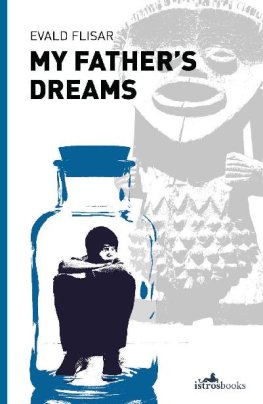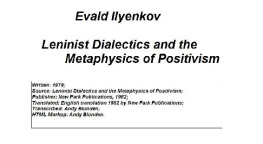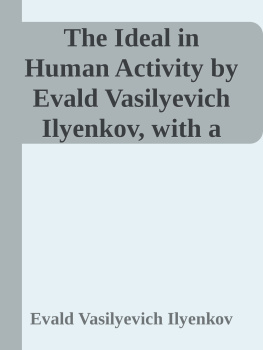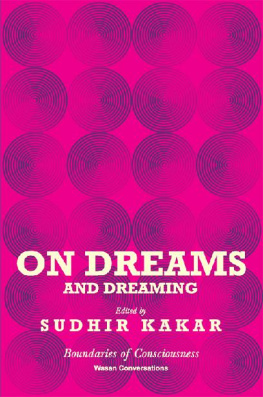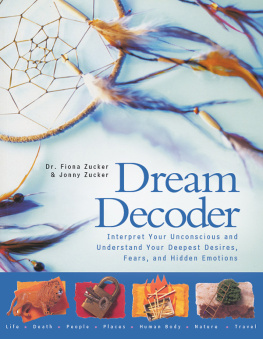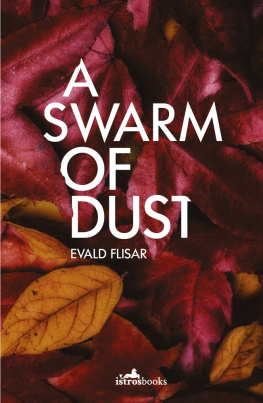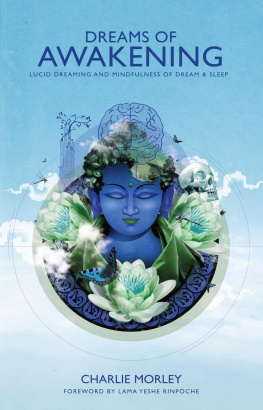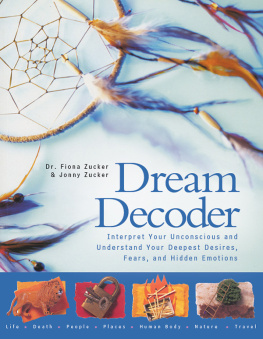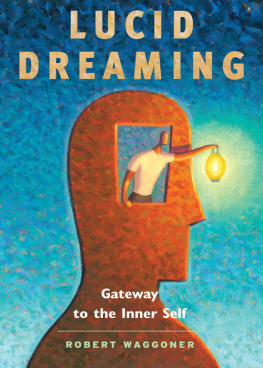Evald Flisar
My Father's Dreams
Men dont choose evil because they like it,
but because they mistake it for happiness.
Mary Wollstonecraft
It isnt easy to talk of ones early life, even after so many years. However, allowing for lapses of memory, I intend to hold nothing back, otherwise telling the story would be a fruitless exercise. Much of it remains unclear, including why my father shortly after his fiftieth birthday went off his head. That was all the more surprising because he had never given any impression that he was anything other than the sanest person on earth. So, at least, he appeared to those who knew him. And he was known to a great many people: as a country doctor he covered twenty villages and was paid regular visits by patients ranging from pregnant girls to old men requiring colostomies. It is true that the doctor in the neighbouring district was of a friendlier disposition, but my father could boast a much higher rate of cure. Thats why he felt that a guarded measure of disdain for ones patients was hardly a crime. Surprisingly, he was exceptionally pleasant to hypochondriacs, for whom he harboured a special feeling of closeness.
In my mothers opinion he could have been a little less pleasant to young pregnant girls, who appeared to be his favourite patients. As far as I remember, that never caused any problems, except once, when a particularly attractive Gypsy girl from a hamlet in the nearby woods came for an examination insufficiently clean. This upset Father so that he locked her into a bathing cabin, releasing her only after she had showered twice and once more for good measure. Although he later denied accusations that he had spent half an hour drying her with a miniscule towel, the Gypsies threatened him with court action until he mollified them with a wad of cash, about half of his monthly salary.
My father was a quiet man, but occasionally he was struck by a fit of anger of such magnitude that he was more shocked by it than anyone else. Usually it was my mother who pushed him over the border of self-restraint, especially when she dared to criticize his experiments in the basement of the health centre. In her opinion he should have refrained from any work that was not part of his duties at the surgery, and devoted the rest of his time, like most husbands, to his family.
Family? was his usual response. One bastard and one feebleminded woman are hardly a family.
Mother could bear his rudeness only by turning it into a joke. Everybodys got what they deserve, she would observe with a bitter smile whenever she felt disinclined to argue. Her capacity, not to mention the will, to argue with Father had eventually waned, and they settled for aiming their words past each other, with Father exploding only when he was hit accidentally. But never, not even in the throes of his worst distemper, did he hit Mother, however much I felt that that was what she was trying to get him to do.
Whenever I summon my father to memory I see a tall, slightly stooping gentleman of middle age, with slow, careful movements, somewhat plumper round his waist than he would have wished, yet far from being fat, with a neatly trimmed reddish beard and gently greying hair parted on the side, which made him look younger than he was, always wearing a slightly anxious expression, which could, however, together with the softness of his eyes, unexpectedly leap into a warm, puzzling smile, sufficiently charming for him to be known, especially among the female patients, as the handsome doctor.
It was probably his popularity that irked Mother most, for she desperately wanted his smile to be reserved for herself and me, although I was its happy recipient often enough, most likely because I never argued with Father. Another habit of his that Mother couldnt stand was his natural tendency to be eternally lost in thoughts. Indeed, very often he seemed to be most absent when he was at home, pontificating on God knows what problems or, with eyes closed, completely absorbed in classical music, hardly Mothers favourite.
At first Mother worked as a receptionist at the health centre, but shortly after they married Father talked her into retraining for the position of an accounts clerk with a nearby brick factory. Otherwise, ran his argument, the health centre would begin too resemble a family practice. There was hardly any danger of that, for next to Father and his assistant, Nurse Mary, the health centre also housed a dentist and his assistant, not to mention their common receptionist. It was much more likely that Father began to be bothered by Mothers increasing curiosity about his experiments in the basement of the health centre, where he was spending so much of his time. Once he even admitted as much. He said he had nothing to hide, but simply wanted to pursue his research in peace.
You mustnt think, he would occasionally turn to Mother with a sarcastic smile, that marrying a doctor automatically confers on you a degree in philosophy. What could a man of science and a housemaid possibly talk about? Wishes are one thing, but fortunately in this world it is abilities through which we realise our potential.
Mother tried her best not to show how lonely she felt. Any objections she found the courage to raise were promptly brushed aside by Fathers acid wit, in the face of which she felt transfixed like a small rodent confronted by a deadly snake. Gradually she came to realise that it was much safer to communicate with Father in monosyllables, and to entrust her grievances to me. There were days when she could not stop. With a cigarette perched on her lower lip, dishevelled, with one hand swinging this way and that, and the other firmly on a bottle of Valium in the pocket of her apron, she would cross and re-cross the living room and pile lamentation upon lamentation: that this man would send her to an early grave, that she had no one who would at least try to understand her, that one day she would simply walk out of the house and drown in the nearby stream, and that, obviously, I must hate her as well, otherwise I would not always take Fathers side, or would, at the very least, grant her an occasional loving smile.
Evidently I was failing her as much as Father. I, too, was wrapped up in my own world, which was far removed from her notions of an idyllic family life of a country doctor. Whenever I wasnt lost in one of the books I took from Fathers library I would wander through the surrounding woods or sit in my room, daydreaming about nothing in particular and everything at the same time. Sometimes I even locked the door, pretending to study for school, while in fact I would be staring out the window, trying to imagine Father at work, examining patients, lancing boils, signing death certificates. And, above all, working on his experiments in the basement, to which he alone had the right of entry.
I loved Father very much. Without him, my growing years would have been lonely and without any mystery. I had no friends at school. Father was the axis around which revolved my joys and expectations. He seemed like a god to me, infallible. I was particularly excited by the smells that hovered about him every time he returned from the surgery: of unusual potions and disinfectants, of unknown acids and bitter-sweet ointments, even I sometimes felt of blood and lymphatic fluid, and the aromas of hundreds of illnesses, of which he was able, when we had guests, to talk so convincingly that most of those present instantly developed appropriate symptoms. Father laughed, comfortably at home in the midst of pain and suffering, never succumbing to as much as a cold, as if protected by the spell of a benevolent witch.
One day he invited me for a walk to the edge of the wood above our house, where he spent almost an hour of his precious time talking to me. It was spring and the meadows were overflowing with flowers. Sitting on the trunk of a fallen birch tree, we surveyed the village below us: the grey rectangular building which housed the health centre, the shop, the inn, the houses, mostly farms, the school which perched like a speck of bad conscience among the trees on the opposite slope, and our home below us, half hidden in the luxuriance of the surrounding orchard.

